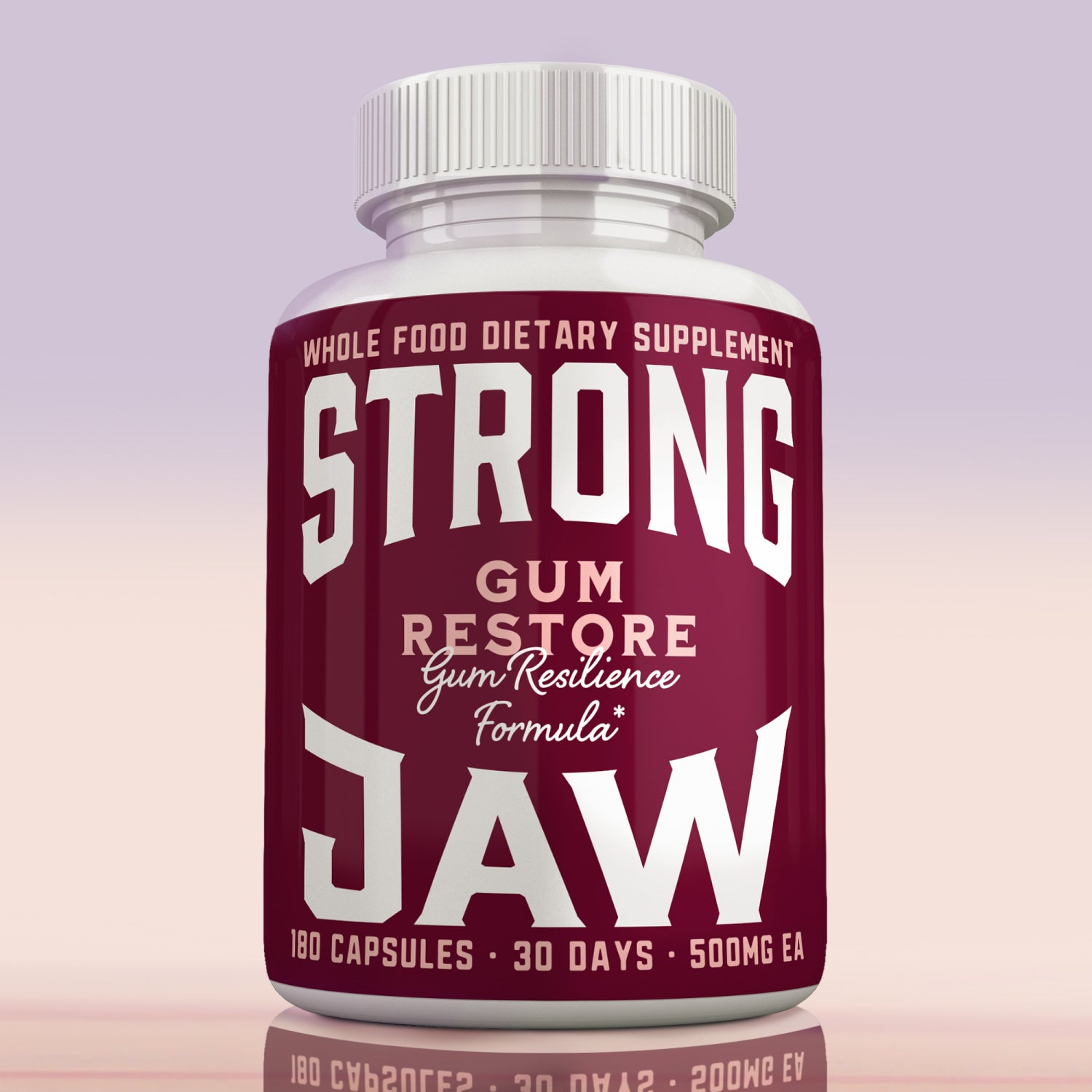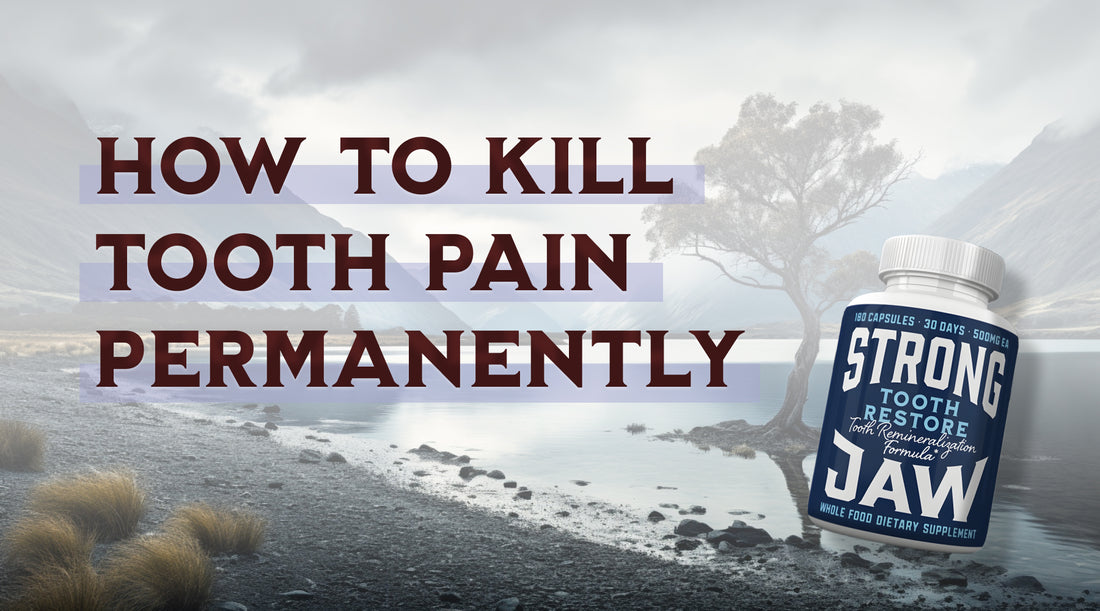Tooth pain nerve can be a truly excruciating experience, stopping you in your tracks and disrupting your daily life. Finding a permanent solution to this debilitating issue is essential for your well-being and overall oral health. One such method is to kill tooth pain nerve in 3 seconds permanently. Let us explore the causes, quick solutions, home remedies, and preventive measures to help you achieve lasting relief from tooth pain nerve.
Key Takeaways
- Understand causes of tooth pain nerve and use preventive measures such as regular checkups, proper oral hygiene, and healthy lifestyle choices.
- Seek quick solutions for relief including root canal treatment, tooth extraction, or over-the-counter painkillers.
- Utilize home remedies like cold compresses, saltwater rinses and clove oil application to provide temporary relief until professional dental care is obtained.
Understanding Tooth Pain Nerve Causes
Understanding the root causes of tooth pain nerve is the first step towards effective combat. The main culprits behind this distressing condition are tooth decay, gum disease, and fractures or abscesses.
A thorough understanding of these causes equips you for taking preventative measures and effective treatment actions against tooth pain nerve.
Tooth Decay
Tooth decay occurs when bacteria and plaque erode the enamel, exposing the sensitive pulp and resulting in tooth pain nerve in 3 seconds. This pain can be brief yet intense, with swelling occurring if decay or microorganisms spread to deeper layers.
Fillings are the most prevalent treatment for addressing a cavity, providing instant pain relief. These restorative treatments utilize composite resin, a specialized plastic, to restore the cavity and reinforce the tooth, eliminating tooth pain nerve in 3 seconds.
Gum Disease
Gum disease is an inflammation and infection of the gums and other supporting structures of the teeth, leading to tooth pain nerve. When gum issues are the cause, a periodontal evaluation and treatment may be suggested by the dentist to help relieve tooth pain.
Addressing gum disease not only prevents further damage to the tooth’s supporting structures, but also alleviates the resultant tooth pain nerve.
Fractures and Abscesses
Fractures and abscesses can also lead to tooth pain nerve, as they can damage the tooth’s structure and cause infection. If deeper cracks on the tooth enamel are causing pain, it’s advisable to consult a dental professional for further assessment and tooth pain relief.
Dental crowns, prosthetic devices designed to encase the entire visible surface of a tooth, provide relief from dental pain and protect the tooth from further damage.
Quick Solutions for Tooth Pain Nerve
Finding an effective solution becomes critically important when tooth pain nerve strikes. Quick solutions include root canal treatment, tooth extraction, and over-the-counter painkillers. Each of these options serves a specific purpose in providing relief from tooth pain nerve, depending on the severity and underlying cause of the pain.
Root canal treatment is a procedure that involves removing the infected pulp from the tooth and replacing it.
Root Canal Treatment
Root canal treatment is a dental procedure that involves the removal of infected or damaged nerve tissue, cleaning of the tooth, and filling of the space to provide relief from pain. During the procedure, the dentist drills into the tooth to remove the infected pulp, which is causing pain, and subsequently fills the area with an inert material and seals it with either a temporary or permanent filling.
Root canal therapy effectively eliminates discomfort and preserves the natural tooth from being removed, boasting a very high success rate.
Tooth Extraction
In some cases, tooth extraction is a necessary procedure. This may be due to irreparable tooth damage or severe infection. This procedure is typically performed by a dentist utilizing local anesthesia and offers a definitive solution to tooth pain and nerve discomfort.

Given that tooth extraction is an irreversible procedure, careful consideration of its pros and cons is necessary before deciding on this solution.
Over-the-Counter Painkillers
Over-the-counter painkillers like ibuprofen and acetaminophen can provide temporary relief from tooth pain nerve. While they offer short-term respite, it’s important to remember that these medications do not address the underlying cause of the pain.
Before taking over-the-counter painkillers for tooth pain nerve, it’s recommended to consult a doctor for safety and effectiveness assurance.
Home Remedies for Temporary Relief
In some cases, home remedies can provide temporary relief from tooth pain nerve until professional dental care can be sought. Cold compress, saltwater rinse, and clove oil application are all natural remedies that can help alleviate tooth pain nerve for a short period of time, allowing you to manage the discomfort while seeking a more permanent solution.
These remedies can be used in combination with over-the-counter pain medications to provide additional benefits.
Cold Compress
A cold compress can help to reduce inflammation and provide temporary numbing of the nerves, thus providing quick relief from tooth pain. To use a cold compress effectively, it is suggested to alternate the cold compress for 15 minutes on and 15 minutes off, repeating as necessary.

This simple yet effective method can offer much-needed relief when tooth pain nerve strikes, helping to kill tooth nerve pain, alleviate tooth nerve pain, and relieve pain.
Saltwater Rinse
A saltwater rinse is a solution composed of salt and water that helps purify the mouth and extract any extra fluid, providing relief from tooth pain nerve. It is suggested to use a ratio of half a teaspoon of salt to a cup of warm water for a saltwater rinse.
The advantages of utilizing a saltwater rinse include:
- Alleviating inflammation and swelling in the gums
- Eliminating the bacteria causing infection
- Removing the fluids that cause swelling and decreasing inflammation.
Clove Oil Application
Clove oil has natural analgesic and antimicrobial properties that can provide temporary relief from tooth pain nerve when applied to the affected tooth. To utilize clove oil for temporary relief, one can apply a drop of the oil to a Q-tip and massage around the offending tooth for up to two minutes.
Alternatively, you can add a few drops of the solution to a cup of water. This treated water can be used as a mouth rinse. Remember to dilute the clove oil prior to application, as applying the oil directly to the gums or other soft tissues in the mouth may result in a burning sensation.
Preventing Tooth Pain Nerve: Dental Care Tips
Preservation of optimal oral health and avoidance of discomfort and pain necessitates the prevention of tooth pain nerve. This can be achieved through regular dental checkups, proper oral hygiene, and healthy diet and lifestyle choices.
A proactive approach to your dental health significantly reduces the risk of experiencing tooth pain nerve, leading to a pain-free smile.
Regular Dental Checkups
Regular dental checkups are routine visits to the dentist that usually occur every six months. During these checkups, a dental hygienist will professionally clean your teeth, removing plaque and tartar buildup, while the dentist will examine your teeth and gums for any indications of oral health issues, such as cavities, gum disease, or oral cancer.

Regular dental checkups, essential in preventing tooth pain nerve, can help detect and treat potential dental issues before they escalate to significant discomfort.
Proper Oral Hygiene
Maintaining proper oral hygiene is key in preventing tooth decay and gum disease, which can culminate in tooth pain nerve. This involves:
- Brushing your teeth twice a day with fluoride free toothpaste e.g. hydroxyapatite toothpaste
- Using a soft-bristled toothbrush
- Flossing daily
- Brushing your tongue

Maintaining regular brushing and flossing habits helps eliminate food particles and plaque from between your teeth, thus decreasing the possibility of cavities and tooth pain nerve.
Diet and Lifestyle Choices
Diet and lifestyle choices, such as limiting sugary and acidic foods and avoiding tobacco use, can help maintain overall oral health and prevent tooth pain nerve. Consuming fewer sugary and acidic foods may help reduce the risk of tooth pain nerve, as these foods can contribute to tooth decay.
Furthermore, avoiding tobacco use can reduce the risk of developing gum disease, which can lead to tooth pain nerve. Adopting healthy dietary and lifestyle habits significantly enhances your overall oral health and helps in preventing tooth pain nerve.
Summary
Throughout this blog post, we have explored the causes, quick solutions, home remedies, and preventive measures for tooth pain nerve. Understanding the root causes of tooth pain nerve and implementing the appropriate treatment options can provide lasting relief from this debilitating condition. Moreover, developing healthy habits, such as regular dental checkups, proper oral hygiene, and making wise diet and lifestyle choices, can help maintain overall oral health and prevent tooth pain nerve.
Take control of your dental health and say goodbye to the tooth pain nerve by following these guidelines and seeking professional dental care when necessary. Remember, a healthy and pain-free smile is not only a sign of good oral health, but it also contributes to your overall well-being and quality of life.
Frequently Asked Questions
What will kill an exposed nerve in a tooth?
A root canal procedure is the most common way to kill an exposed nerve in a tooth. Your dentist will numb the area before drilling into it to remove decay and bacteria inside the root canal.
The dentist will then fill the root canal with a special material to prevent further infection. Finally, the dentist will seal the tooth with a crown or filling to protect it from further damage.
What helps unbearable tooth pain?
To get immediate tooth pain relief, consider taking an over the counter pain reliever, swishing your mouth with warm salt water, applying oils and extracts that offer pain relief, applying an ice pack to the painful area, and keeping your head elevated.
Will a tooth nerve ever stop hurting?
Nerve pain in the tooth can sometimes go away on its own if the cause is temporary.
However, for most cases of nerve pain resulting from decay, trauma or infection, the best way to get rid of the pain is to seek dental treatment as soon as possible.
What's the strongest toothache medicine?
Ibuprofen is the strongest toothache medicine, according to a study which found it more effective against toothaches than aspirin or acetaminophen. To find fast relief from toothache pain, take one of these over-the-counter remedies such as ibuprofen, Advil, Motrin or naproxen, as prescribed on the bottle.
Recent data has also shown that the combination of Advil (ibuprofen) and Tylenol (acetaminophen) is as effective as prescription opioids for tooth pain.
What are the main causes of tooth pain nerve?
Tooth nerve pain is commonly caused by tooth decay, gum disease, and fractures or abscesses.
These conditions can cause inflammation and irritation of the nerve, leading to pain. Treatment for tooth nerve pain depends on the underlying cause. In some cases, a root canal may be necessary to remove the root.


